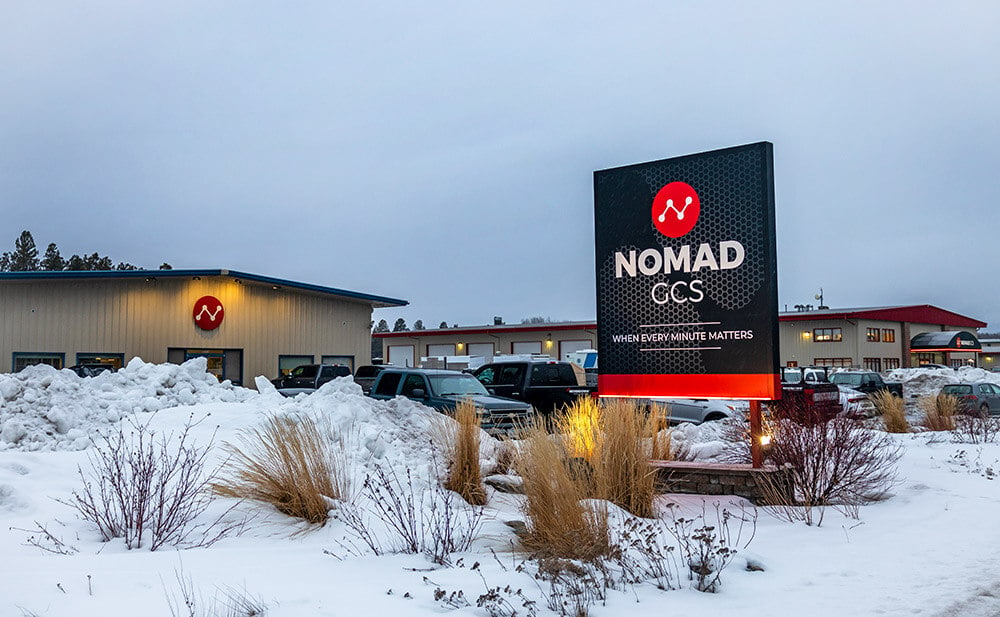7 min read
IFS ERP vs NetSuite ERP: The 2026 Guide for Midmarket Manufacturers
Your next Enterprise Resource Planning (ERP) system will either unlock your factory or cement your bottlenecks. You've likely outgrown your...
6 min read
 Blake Snider
:
Oct 1, 2025 2:30:00 PM
Blake Snider
:
Oct 1, 2025 2:30:00 PM
Every minute of downtime hits harder in asset-heavy industries. For energy and industrial manufacturers, unreliable systems don’t just slow things down. They threaten margins, contracts, and operational stability.
McKinsey found that in energy and materials sectors, unplanned turnarounds can eat up 30–50% of maintenance budgets and slash production by up to 10%. When that’s the cost of inefficiency, your ERP acts as a strategic infrastructure.
Can it connect project controls with asset performance? Dispatch field techs and enforce SLAs across sites? Scale with compliance demands and aging infrastructure? In this article, we’ll break down IFS Cloud vs Epicor (Kinetic & Eclipse), and show which ERP fits your business model, not just your budget.
IFS and Epicor both offer end-to-end ERP solutions, but they were built for different worlds. IFS focuses on organizations where assets, projects, and service operations define the business. Epicor, by contrast, targets traditional manufacturing and distribution workflows. For a broader comparison of leading platforms, explore our guide to the top ERP systems for manufacturing.
IFS Cloud is designed for complex environments where project control, asset uptime, and field service are core operations. It fits best in engineer-to-order (ETO) and make-to-order (MTO) manufacturing, as well as in energy, utilities, construction, and aerospace.
The platform brings project management, asset lifecycle tracking, and field operations into a single system. Financials, scheduling, and execution are connected in real time. Its enterprise asset management (EAM) capabilities cover preventive and condition-based maintenance, regulatory compliance, and long-term asset planning. Field service tools are native, with offline mobile access, GPS routing, and SLA monitoring built for distributed teams.
IFS also supports phased rollouts across global sites or business units, making it a strong fit for multi-entity firms with complex infrastructure and service demands. Learn how Astra Canyon helps implement IFS ERP for asset-heavy, service-driven operations.
Epicor offers two main ERP platforms: Kinetic and Eclipse. Epicor Kinetic serves discrete manufacturers, particularly mid-sized firms in metal fabrication, industrial equipment, and high-tech sectors. It emphasizes production efficiency with tools for shop floor control, advanced planning and scheduling (APS), product configuration (CPQ), and integrations with MES and QMS.
Epicor Eclipse, by contrast, is built for wholesale distributors in verticals like electrical supply and HVAC. It focuses on order management, inventory control, and multi-branch operations. Eclipse isn't intended for manufacturing use cases or asset-heavy operations.
Epicor Kinetic competes with IFS in manufacturing, but lacks native asset management and field service capabilities. For companies that rely on equipment uptime, service contracts, or long-cycle projects, that gap can become a liability. For a side-by-side look at more ERP options, check out our top ERP systems for manufacturing guide.
Both IFS Cloud and Epicor Kinetic cover the ERP fundamentals, but their strengths show in different places. Here’s how they compare on features that matter most to industrial and energy-sector manufacturers.
IFS excels in complex project environments. Its built-in work breakdown structures (WBS), earned value management (EVM), and progress billing are designed for capital projects that span months or years. Financials, scheduling, and resource planning are deeply integrated, allowing project teams to work from a single version of the truth.
Epicor Kinetic offers solid tools for project scheduling and budget tracking, but is better suited to repeatable production flows. Its architecture focuses more on shop floor execution than on managing multi-phase or cost-intensive projects.
IFS includes ISO 55001-aligned Enterprise Asset Management (EAM) with native features like preventive maintenance and condition monitoring, built for operations where uptime drives profitability.
Epicor handles basic maintenance tasks through light modules or third-party add-ons. While suitable for simple asset needs, it lacks the depth required by energy, utilities, or infrastructure-heavy firms.
IFS excels in field service, offering offline mobile access, GPS dispatch, SLA tracking, and installed base support, all natively integrated. It’s a true fit for companies with large, distributed field teams.
Epicor offers mobile capabilities through Kinetic Mobile, but its field tools are limited in scope. It doesn’t support deeper field workflows like warranty tracking, complex service parts planning, or real-time technician coordination across regions.
IFS offers prebuilt solutions tailored to energy, aerospace, utilities, and construction. Industry compliance, project templates, and reporting structures are baked into the platform.
Epicor Kinetic performs best in discrete manufacturing, especially in North America. It’s a reliable choice for high-mix, low-volume producers. Epicor Eclipse, meanwhile, serves wholesale distributors with strong inventory and order management, but it’s not designed for manufacturing or project-driven industries.
Selecting an ERP isn’t just about what it can do. It’s about how well it fits into your infrastructure, how quickly your team can adopt it, and what kind of support structure backs it up long term. If you’re still exploring options, our top ERP systems for manufacturing article compares usability, deployment models, and scalability across leading vendors.
IFS supports multi-tenant SaaS, private cloud, and on-premise deployments. Its cloud-native architecture is consistent across modules, making it ideal for phased global rollouts or hybrid environments. That consistency reduces integration friction and simplifies scaling across sites.
Epicor Kinetic offers similar deployment flexibility, like cloud, on-premise, or hybrid, but its cloud setup is more modular. While this allows for tailored configurations, it can introduce complexity when extending the system across multiple business units.
IFS Cloud delivers a modern, role-based interface with strong personalization. Users can build dashboards, access in-app guidance, and navigate by function, reducing onboarding time and improving task execution across teams that span operations, finance, and service.
Epicor Kinetic has made real progress with its browser-based UI. It includes embedded analytics and low-code tools that support customization. Still, navigation can feel layered, especially when jumping between production, finance, and inventory functions. Power users will adapt quickly, but casual users may need more structured training.
IFS operates a global support network and maintains deep partnerships with industry-aligned integrators across North America, EMEA, and APAC. It emphasizes direct customer engagement and often collaborates with clients on complex rollouts, especially in regulated or infrastructure-heavy environments.
Epicor maintains a broad partner ecosystem, especially strong in the U.S. Its network enables industry-specific expertise and regional support. However, service quality can vary by partner. That flexibility can be a strength or a risk, depending on who handles your implementation.
ERP pricing is rarely transparent, and long-term costs often exceed initial estimates. How IFS and Epicor structure their licensing and how well they align to your operations will shape your ROI more than sticker price. If you’re comparing platforms beyond IFS and Epicor, our top ERP systems for manufacturing article breaks down features and pricing across the field.
IFS supports SaaS and perpetual licensing, priced by named users and activated functionality. License tiers, like Full User and Task User, offer role-based access. (community.IFS.com) Because key features like EAM and FSM are included natively, upfront costs are higher. But for asset-heavy firms, that integration often reduces long-term complexity and third-party dependencies.
Epicor Kinetic uses concurrent licensing and modular add-ons, making it easier for mid-sized firms to start small and scale gradually. But modular growth can introduce hidden integration costs, especially in areas like service, asset tracking, or complex project control.
Gartner defines Total Cost of Ownership (TCO) as the full lifecycle cost of an ERP, covering licenses, implementation, training, support, downtime, and adoption. (Gartner) IFS requires greater upfront investment but offers long-term stability in complex environments.
Epicor may deliver quicker wins, but costs can climb as needs expand. Gartner also warns that over 70% of ERP projects will miss business goals by 2027, often due to misaligned vendor fit. Learn how Astra Canyon helps de-risk IFS ERP implementation for high-stakes industrial environments.
No ERP platform is universally “better.” The right choice depends entirely on your operating model. Here's how IFS and Epicor align with different types of industrial and energy-sector organizations.
For capital project environments—like ETO or milestone billing—IFS tightly integrates cost, schedule, and execution. Finance, engineering, and operations can work from the same system, minimizing disconnects that derail complex builds.
Epicor Kinetic is better for short, repeatable builds with limited project oversight. It lacks the depth needed for multi-phase or financially intensive projects.
IFS includes predictive maintenance, lifecycle planning, IoT integration, and asset analytics—all native. That makes it a top choice for firms that treat uptime as a core performance metric.
Epicor offers basic maintenance tools but depends on third-party add-ons for full lifecycle visibility. For companies that manage high-value assets across sites, this gap can drive complexity and cost.
IFS supports mobile field teams, SLA compliance, infrastructure tracking, and sector-specific reporting. Its record spans renewables, oilfield services, and utilities, managing regulated projects.
Epicor, in both Kinetic and Eclipse, isn’t purpose-built for energy-sector complexity. It lacks asset governance and the service lifecycle depth needed in this environment.
|
Capability |
IFS Cloud |
Epicor Kinetic |
|
Best Fit |
Asset-heavy, project-driven industries |
Discrete manufacturing |
|
Project Management |
Advanced (WBS, billing, cost control) |
Basic tracking and scheduling |
|
Asset Management |
Built-in EAM with lifecycle support |
Limited, add-on dependent |
|
Field Service |
Native FSM with offline and SLA tools |
Basic mobile support |
|
TCO Outlook |
Higher upfront, more integrated long-term |
Lower entry cost, more modular complexity |
IFS and Epicor are both capable platforms. But they solve different problems. IFS handles operational complexity with integrated tools for projects, assets, and field execution. It’s a strong match for firms in energy, utilities, construction, and aerospace.
Epicor Kinetic fits best in discrete manufacturing. If your focus is MES integration, CPQ, and efficient production without heavy asset or service layers, Epicor delivers solid value.
Don’t decide based on features. Decide based on operational fit and long-term ROI. Ready to get specific? Schedule your IFS ERP walkthrough and see how it maps to your environment.

7 min read
Your next Enterprise Resource Planning (ERP) system will either unlock your factory or cement your bottlenecks. You've likely outgrown your...

Tucson, AZ – March 24, 2025

If you run a manufacturing operation, you already know the risks: missed ship dates, broken processes, and bloated inventories. In 2026, the...